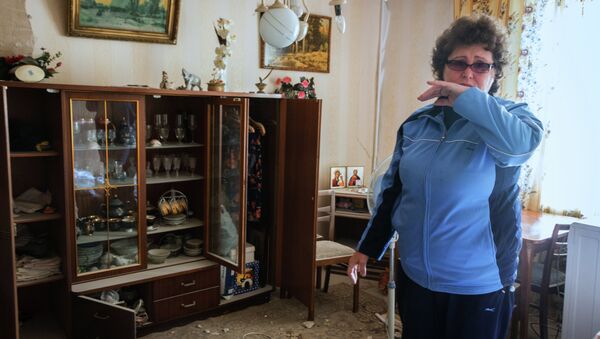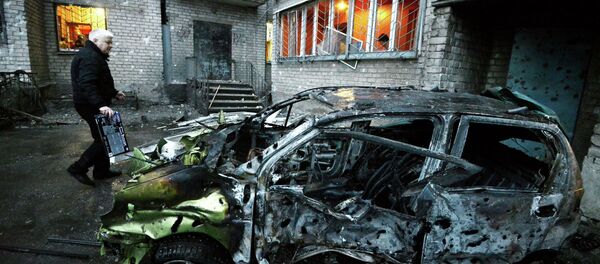"Persecution and intimidation of people suspected of supporting the Ukrainian armed forces or being pro-Ukrainian remained widespread," the report said, referring to acts committed by the independence supporters.
The UN mission had received reports about killings, torture and ill-treatment in areas controlled by the militias, the report said. The cases allegedly included the illegal deprivation of liberty, forced labor, looting, ransom demands and extortion.
In addition, the UN human rights mission "continued to receive allegations of ill-treatment and torture of people detained by the Ukrainian armed forces and law enforcement agencies. It is also concerned that investigations into allegations of gross human rights violations by the Ukrainian military and law enforcement personnel have yet to be carried out."
The conflict in Ukraine escalated in April 2014, when Kiev launched a military campaign against independence supporters in the country’s southeast.
In February, the warring sides signed an agreement on Ukrainian reconciliation in Minsk, stipulating a ceasefire, heavy weaponry withdrawal and prisoner exchanges.
More than 6,400 people have died as a result of the armed hostilities, according to the United Nations, while over one million have become internally displaced.
The investigation into the Odesa massacre is slow and unreliable due to the unwillingness of the government to bring to justice those responsible, the Office of the UN High Commissioner for Human Rights (OHCHR) said.
On May 2, 2014, pro-Kiev radicals blocked anti-government protesters in Odesa's House of Trade Unions and set the building on fire by hurling Molotov cocktails inside. The tragic incident left 48 people dead and another 20 injured.
"Accountability for gross human rights violations… in the 2 May violence in Odesa, when 48 persons died, is pending. No perpetrators have been brought to justice, and the investigation… remains slow," the report on the human rights situation in Ukraine said.
The governmental investigation into the massacre is "unreliable, particularly because of the inability or unwillingness of law enforcement bodies to bring to justice those responsible for the violence," according to the report.



